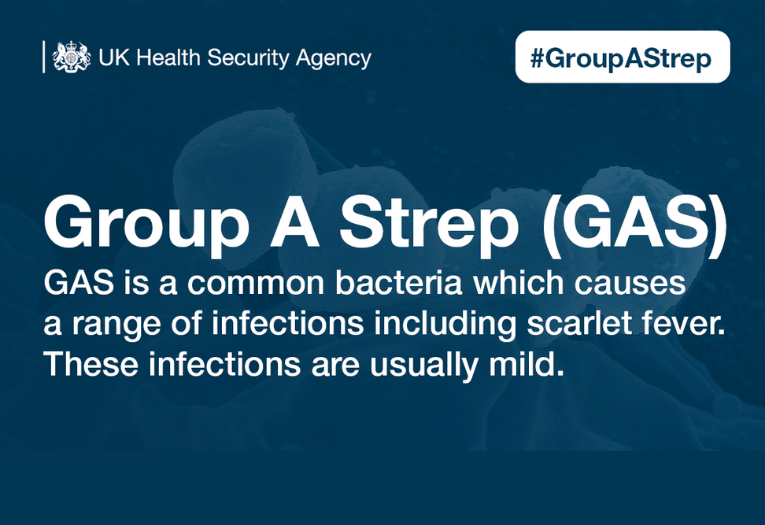Health and wellbeing
Walsall parents and carers urged to be alert to signs of Group A Strep
Published on
Parents and carers are asked to be on the lookout for symptoms after a rise in infections in children nationally called ‘Group A Strep’ or ‘Strep A’.

Walsall Public Health has urged parents and carers to be on the lookout for symptoms after a rise in infections in children nationally called ‘Group A Strep’ or ‘Strep A’.
Group A Strep is usually a mild illness that can be easily treated with antibiotics. However, in rare circumstances it can get into the bloodstream and cause serious illness. This is uncommon.
It is important parents and carers are on the lookout for symptoms. These include sore throat, headache and a fever. Sometimes there may be a fine, pinkish or red body rash with a sandpapery feel. On darker skin the rash can be more difficult to detect visually but will have a sandpapery feel.
If a parent or carer is concerned about their child, they should call their GP or NHS 111 for more information. If it is Group A Strep, quick treatment can prevent serious illness and stop the spread of infection.
There are a range of causes of sore throats, colds and coughs, they should resolve without medical intervention. However, children can on occasion develop an infection and that can make them more unwell.
“ Over the last two years, we have lived with some form of COVID-19 restrictions. This meant we saw a dramatic decrease in most infectious diseases, including those usually associated with young children,
As we are now living with COVID-19, we are now seeing an increase of winter illnesses within education, early years and childcare settings.
Make sure you talk to a health professional (NHS 111 or your GP) if your child is showing signs of deteriorating after a bout of scarlet fever, a sore throat, or a respiratory infection.
You know your child best and if you feel that your child seems seriously unwell, you should trust your own judgement and seek help from the NHS.
The best line of defence is to continue to embrace the simple prevention measures most of us adopted. This includes; staying at home if we don’t feel very well, using a tissue to catch coughs and sneezes, keeping our hands clean or using sanitiser when out and getting vaccinated. They do make a difference and can help to protect us against other viruses including flu and Norovirus, as well as COVID-19.
I would also urge everyone eligible for the free flu vaccine to get it at the earliest opportunity. I would also urge parents of children from two years upwards to get the free flu nasal spray vaccine. This will help provide the best protection for them against flu. “
Parents and carers are encouraged to read a blog post from the UK Health Security Agency (UKHSA), which provides a further helpful explanation of what Group A Strep is and the infections it causes, as well as how it is spread and what to look out for when a child is unwell: Group A Strep - What you need to know - UK Health Security Agency (blog.gov.uk)
Notes to editors
-
A letter has been issued to parents and carers across Walsall with an update on Group A Strep. This can be downloaded by selecting the link: Download (515.97 KB)
-
The NHS Black Country ICB has more information on the flu nasal spray vaccine for children - Flu nasal spray for children :: Black Country ICB
ENDS